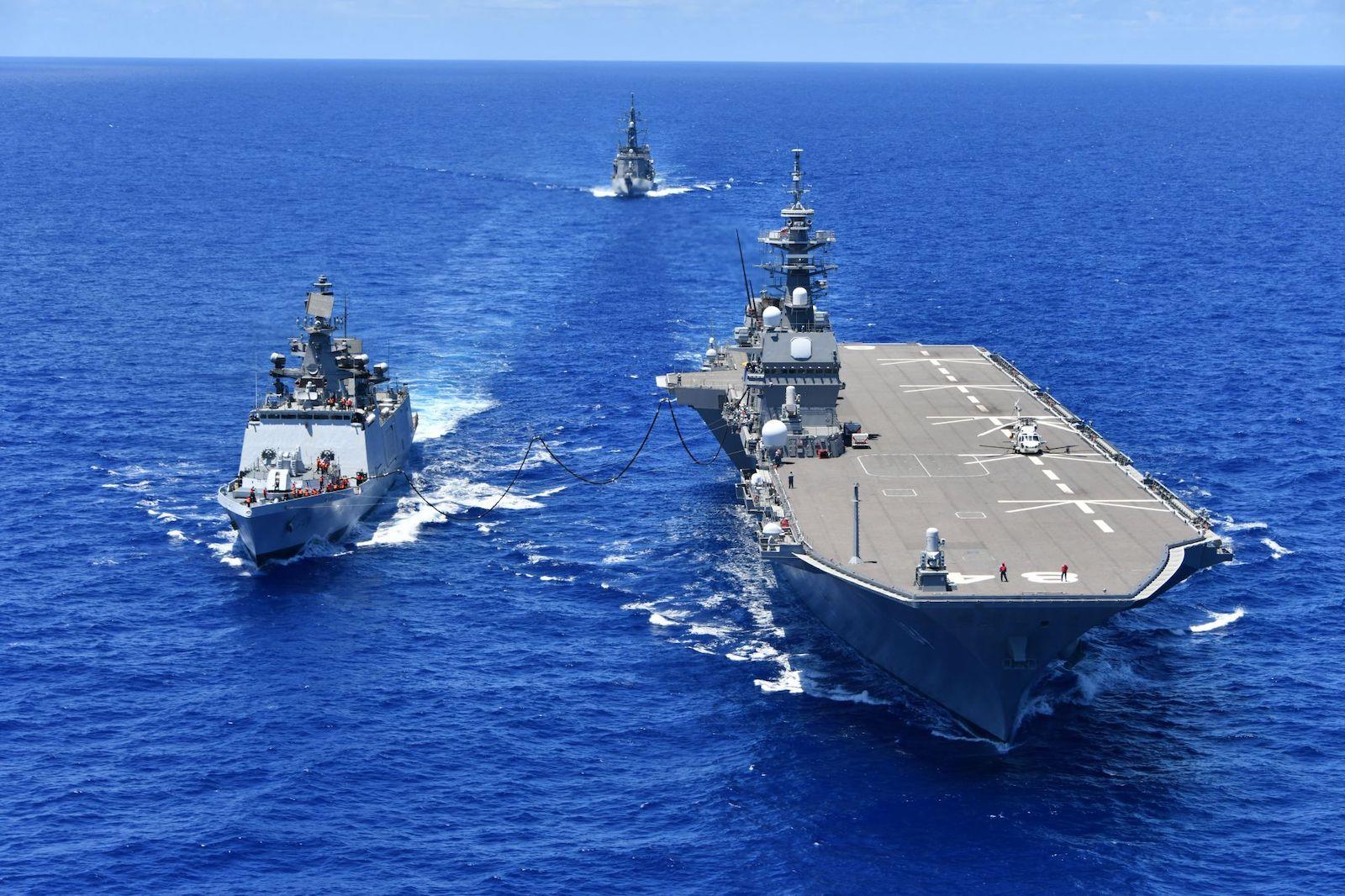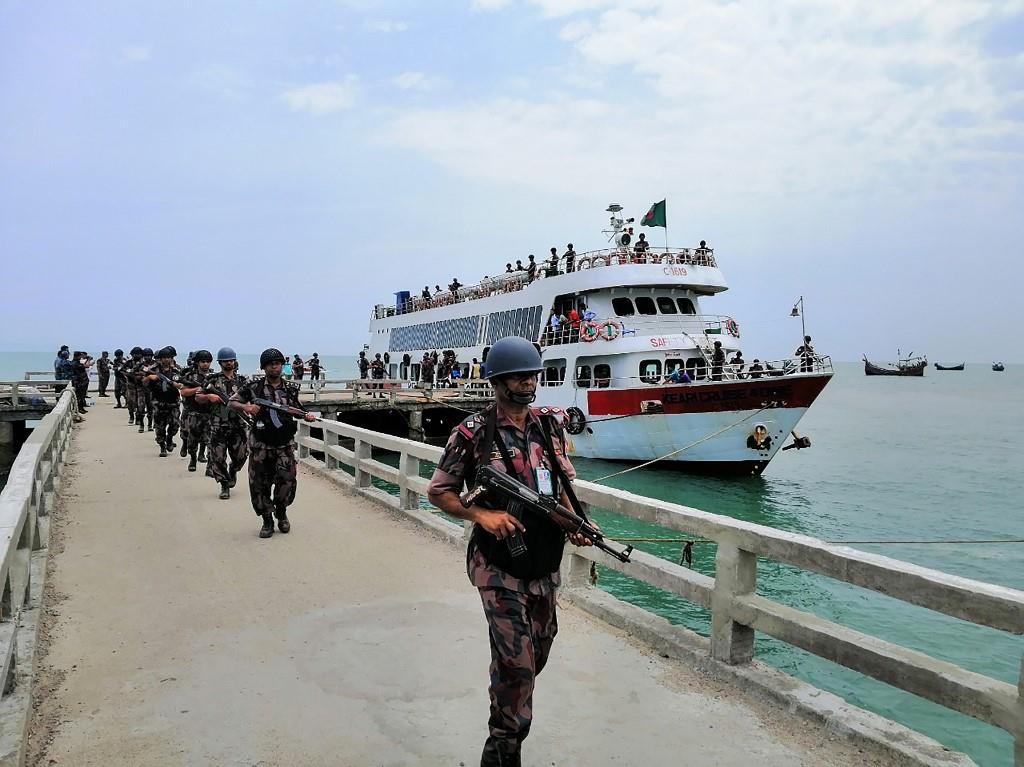(MENAFN- Asia Times) In April 2023, Bangladesh's Ministry of Foreign Affairs released its inaugural official document on the Indo-Pacific, detailing guiding principles and objectives to form the foundation of Dhaka's regional policy.
The publication represents a significant step forward in Dhaka's efforts to articulate its vision for the Indo-Pacific and is indicative of its willingness to engage with the region's major powers.
While the contents of the document are relatively generic, they provide insight into Bangladesh's dilemma of choosing sides amid growing US-China competition in the Indo-Pacific.
The outlook offers little clarity on how Bangladesh plans to navigate the complex and evolving geopolitical dynamics in the Indo-Pacific. Rather, the principles closely resemble Article 25 of Bangladesh's constitution which states that its foreign policy should be guided by the principles of non-interference, peaceful coexistence, respect for international law and norms and cooperation.
The document reaffirms Bangladesh's constitutional commitment to advocate a peaceful international system based on the UN Charter.
The document does not provide any reference to defense collaboration or military cooperation with any particular bloc. Instead, it encourages track-2 diplomatic processes to settle existing disputes by strengthening“mutual trust and respect, [forging] partnerships and cooperation, and [promoting] dialogue and understanding with the aim of ensuring peace, prosperity, security and stability for all in the Indo-Pacific.”
The document emphasizes on the notion of a“culture of peace“, a United Nations declaration that Bangladesh played a key role in drafting in 1997.
While the core strategic and security issues facing the region were not addressed, the outlook called for the establishment of“rules-based multilateral systems” to promote“equitable and sustainable development.”

The Japan Maritime Self-Defense Force conducts Malabar 21 – an inter-nation exercise with the Indian Navy, US Navy and Royal Australian Navy – to improve tactical skills and further strengthen the Quad navies. Photo: AFP / EyePress News
The document refrains from using the Quad's preferred terminology of a“rules-based order.” This deliberate choice of wording reflects Bangladesh's desire to adopt a neutral posture in the geopolitical landscape. Bangladesh is indicating its preference for a more inclusive and open security architecture in the region that accommodates diverse interests and perspectives.
The outlook addresses non-traditional security concerns. Maritime security has been given priority. The document emphasizes strengthening“existing mechanisms on maritime safety and security in the Indo-Pacific.” It also refers to the security implications of climate change and natural disasters.
The outlook took an unambiguous position regarding international laws and norms. Dhaka has rendered its steadfast commitment to 'uphold the exercise of freedom of navigation and overflight, in accordance with international law and conventions'. Bangladesh's affirmation of the United Nations Convention on the Law of the Sea (UNCLOS) must be understood within its national context.
Bangladesh's reliance on sea lanes of communications makes unrestrained access to the sea and adherence to UNCLOS norms crucial for safeguarding its
economic interests . Bangladesh's successful resolution of maritime disputes with India and Myanmar based on UNCLOS also exemplifies the utility of international law for a small state.
Bangladesh's emphasis on existing international laws and norms does not signify a rebuke of China. Rather, it reflects the country's self-awareness of its place in the international community and the limits of its power.
Though the document appears to have been primarily created for a foreign audience, it also includes sections that target domestic constituents. One example is the reference to“Smart Bangladesh,” which highlights Dhaka's ambitious agenda to promote its local initiatives in the global arena.
The outlook's publication coincides with a crucial moment in Bangladesh's foreign policy, as Prime Minister Sheikh Hasina's visits to Japan and the United States in April 2023 thrust the country into the global spotlight. During her trip to Japan, Hasina signed a
joint statement
with Japanese Prime Minister Fumio Kishida, reaffirming their shared commitment to“a free, open and inclusive Indo-Pacific.”
This
strategic partnership
is significant - not only because Tokyo has historically been Bangladesh's largest source of overseas development assistance - but also because Japan is developing a new industrial corridor that aims to connect Bangladesh and Northeast India with Southeast Asia. The strategic partnership is primarily driven by economic motives, with geopolitics playing a crucial role in its formulation.
US-Bangladesh ties have faced several difficulties , with bilateral disagreements over multiple issues ranging from human rights to democratic processes. Bangladesh's close economic and defense ties with china and Russia have further complicated its diplomatic connections with the Western nations, particularly in the wake of the Russia–Ukraine conflict.
In this context, the joint statement released by Japan and Bangladesh has become a crucial means for Dhaka to signal to the United States that it is willing to endorse some of the objectives of the Quad without committing to any overt strategic alignment.

Bangladesh Border Guards eploy on Saint Martin's island in the Bay of Bengal. Photo: AFP
The responses from Dhaka's diplomatic community have been mixed. The United States has insisted that Bangladesh's Indo-Pacific outlook largely aligns with its own indo-pacific strategy .
India's Minister of External Affairs Subrahmanyam Jaishankar commended the publication of the outlook, highlighting its emphasis on adherence to international conventions . In contrast, though, china's response has been relatively restrained.
While Bangladesh's Indo-Pacific outlook is not an explicit pro-Quad tilt, it does show Dhaka's willingness to deepen existing cooperation with the bloc. Still, the document allows for a more nuanced and pragmatic foreign policy approach, considers regional power dynamics and seeks to maintain Bangladesh's strategic autonomy.
Rubiat Saimum is Lecturer of Maritime Security and Strategic Studies at Bangabandhu Sheikh Mujibur Rahman Maritime University.
This article was originally published by East Asia Forum and is republished under a Creative Commons license.
Like this:Like Loading...